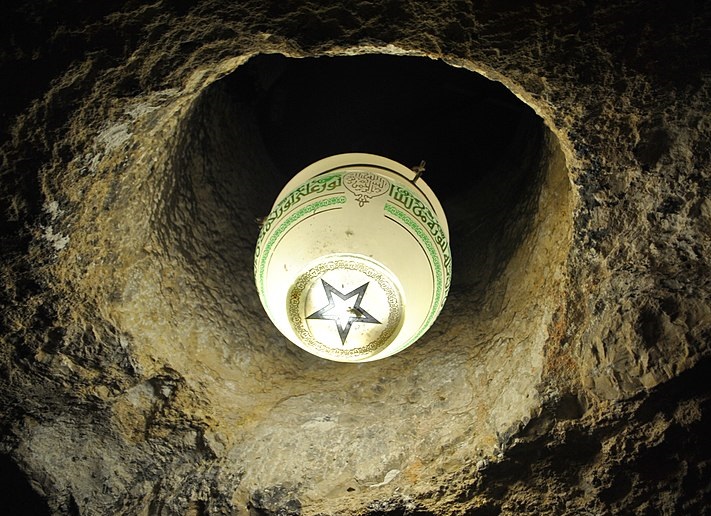The Wycliffe Bible, translated directly from the Latin Vulgate in 1382, uses the word “adultery” 41 times, and Matthew 5:27-28 are rightfully not among them:
Genesis 39:10, Leviticus 20:10, Numbers 5:13, Numbers 5:15, Numbers 5:27, Jeremiah 3:8, Jeremiah 3:9, Jeremiah 5:7, Jeremiah 7:9, Jeremiah 23:14, Jeremiah 29:23, Ezekiel 16:38, Ezekiel 23:37, Hosea 1:2, Hosea 2:5, Hosea 3:3, Hosea 4:2, Hosea 4:12, Hosea 4:13, Hosea 4:14, Hosea 4:15, Hosea 4:18, Hosea 5:3, Hosea 5:4, Hosea 7:4, Hosea 9:1, Matthew 5:32, Matthew 19:9, Matthew 19:18, Mark 10:11, Mark 10:12, Mark 10:19, Luke 16:18, John 8:3, John 8:4, 2 Corinthians 2:17, 2 Corinthians 4:2, 2 Peter 2:14, Wisdom 4:3, Wisdom 14:24, and Sirach 23:23.
Matthew 5:27-28,32 Wycliffe Bible (WYC) 27 Ye have heard that it was said to old men, Thou shalt not do lechery. 28 But I say to you, that every man that seeth a woman to covet her, hath now done lechery by her in his heart.
In verse 32, John Wycliffe translates three separate distinctions: fornication, lechery, and adultery:
32 But I say to you, that every man that leaveth his wife, except cause of fornication (ΠΟΡΝΕΙΑ, ΠΟΡΝΙΑ, tnə’āp̄, תִּֿנְאָֽ֑ף, πορνείας, porneias) maketh her to do lechery (ΜΟΙΧΕΥ, μοιχευθῆναι, moicheuthēnai), and he that weddeth the forsaken wife, doeth adultery (ΜΟΙΧΑΤΑΙ, ΜΟΙΧΑΤΕΑΙ, ΜΟΙΧΑΤΕ, μοιχᾶται, moichatai).
Tyndale 1538, The Great Bible 1540, The Bishops Bible, The Vulgate, Codices Vaticanus, Sinaiticus, and Washingtonianus are in perfect agreement; the man who has lusted after a woman has done ΜΟΙΧΕΥ, which is lechery, and NOT ADULTERY.
Porneias (erroneously equated with “fornication” by Wycliffe) is:
-
the only justification of divorce instigated by a husband that does not cause his ex-wife to commit adultery. https://biblehub.com/text/matthew/5-32.htm
-
pre-meditated. https://biblehub.com/text/mark/7-21.htm
-
an infidelity from which children may be born of different fathers. https://biblehub.com/text/john/8-41.htm
-
something that people are able to abstain from [according to the Impostle Saul]. https://biblehub.com/text/acts/15-20.htm https://biblehub.com/text/acts/15-29.htm https://biblehub.com/text/acts/21-25.htm
-
the marriage of a father and his daughter (infidelity to family) [according to the Impostle Saul]. https://biblehub.com/text/1_corinthians/5-1.htm
-
something that may be avoided, and is harmful to the body (infidelity to self) [according to the Impostle Saul]. https://biblehub.com/text/1_corinthians/6-18.htm
-
in opposition to or conflict with monogamy [according to the Impostle Saul]. https://biblehub.com/text/1_corinthians/7-2.htm
-
a practice that may be repented of. https://biblehub.com/text/2_corinthians/12-21.htm https://biblehub.com/text/revelation/2-20.htm https://biblehub.com/text/revelation/2-21.htm https://biblehub.com/text/revelation/9-21.htm
-
natural to the human condition [according to the Impostle Saul]. https://biblehub.com/text/galatians/5-19.htm
-
a crime and/or sin that may exclude someone from their lineage (infidelity to Judaic law) [according to the Impostle Saul]. https://biblehub.com/text/ephesians/5-3.htm
-
to be condemned [according to the Impostle Saul]. https://biblehub.com/text/colossians/3-5.htm
-
something that abstinence from sanctifies an individual to the will of Elohim (infidelity to self) [according to the Impostle Saul]. https://biblehub.com/text/1_thessalonians/4-3.htm
-
a crime and/or sin that will enrage the gentiles against Babylon. https://biblehub.com/text/revelation/14-8.htm
-
INFIDELITY. https://biblehub.com/text/1_corinthians/6-13.htm https://biblehub.com/text/revelation/17-1.htm https://biblehub.com/text/revelation/17-2.htm https://biblehub.com/text/revelation/17-3.htm https://biblehub.com/text/revelation/17-4.htm https://biblehub.com/text/revelation/18-3.htm https://biblehub.com/text/revelation/19-2.htm
Adultery is always an infidelity.
Infidelity is not always or often an adultery.
Lechery is always an infidelity to the faithful, but it is never an adultery in and of itself.

